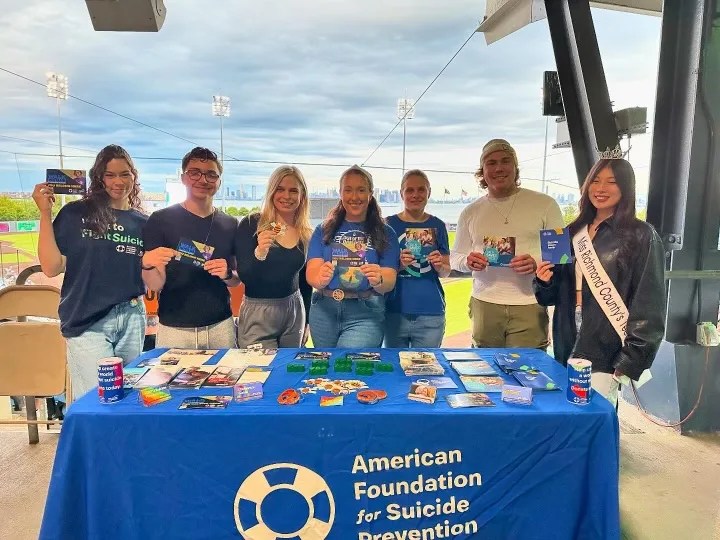
Suicide Prevention Month: Advice from an Expert
Felicia Gambino is the Executive Co-Chair of the American Foundation for Suicide Prevention’s Staten Island Walk Committee. This organization collaborates with various community partners to educate, advocate, and fundraise for suicide prevention efforts across Staten Island and NYC. Gambino is also a master’s candidate in Social Work at Columbia University, specializing in Advanced Clinical Work with a concentration in Family and Youth Services.
We asked Felicia for expert advice on suicide prevention and recognizing the signs in children and teens.
Q: What are some common signs that an adolescent may be considering suicide?
A: Some common signs that an adolescent may be considering suicide include:
- Abnormal changes in mood and behavior (Are they suddenly more reserved? Perhaps easier to agitate? Or have they been experiencing a period where they appear quiet and sad, and then suddenly are energetic and happy? The latter could suggest that the individual has settled on a plan to end their life and they are happy that they will be relieved from their pain soon)
- Sudden loss of interest in activities and individuals that they once enjoyed
- Giving away belongings
- Talking about ending their lives (even if it appears as if they are joking about it), feeling trapped, having no reason to live, feeling as if they are a burden to others
- Increased use of alcohol or drugs
- Acting recklessly
Psst… Check out Signs Your Child May Be Struggling with Their Mental Health
Q: What is a common misconception about mental health in today’s youth?
A: A common misconception regarding suicide, especially in our youth, is that a suicide attempt occurred due to a specific life event, like a failed class or a breakup. The truth is, research has shown that there are a number of health, historical, and environmental factors that add up to cause a person to experience serious distress and can lead to them becoming more vulnerable to a suicide attempt.
Some of these include:
- Health factors: depression, anxiety, bipolar disorder, substance abuse disorders, serious and/or chronic health conditions
- Historical factors: family history of suicide or mental health conditions, childhood abuse, previous suicide attempts
- Environmental factors: access to lethal means, knowing others who have attempted suicide, prolonged stress, and stressful life events.
Psst…Check out 10 Celebrities Who Are Open About Their Mental Health
Q: What resources do you recommend for someone struggling with suicidal thoughts?
A: The first resource that I always share is our suicide and crisis hotline, 988. If you or someone you know is experiencing a crisis, you can text the hotline to reach a free and confidential crisis counselor who can support you in your time of need. The National Alliance on Mental Illness (NAMI) offers amazing, free programs and support groups for families of individuals struggling with mental illness as well as youths who may be struggling. This is a great way to connect with other parents who may share similar experiences and can help you cope. Other great resources on Staten Island include Project LAUNCH hosted by RUMC, the Pride Center of Staten Island, and the Seamen’s Society.
The Staten Island Walk takes place this Sunday, September 29th, starting at noon at the Stonehouse at Clove Lakes Park. The Staten Island Out of Darkness Walk is a wonderful annual fundraising event that brings the community together to foster awareness of suicide and mental health, and provide support for survivors.
The American Foundation for Suicide Prevention is a national nonprofit that is leading the fight against suicide at the national level. Funds raised by the walks go towards AFSP’s lifesaving research, education, advocacy, and survivor support programs. By walking to raise these critical funds, participants can build a community that is smart about mental health and save lives while bringing hope to those impacted by suicide. To register for the walk or make your donation, visit AFSP.org/statenisland.
If you or someone you know is experiencing suicidal thoughts or a crisis, please reach out immediately to the Suicide and Crisis Hotline by calling 988.
More on Suicide Prevention Month: Suicide Prevention Month: My Story

















